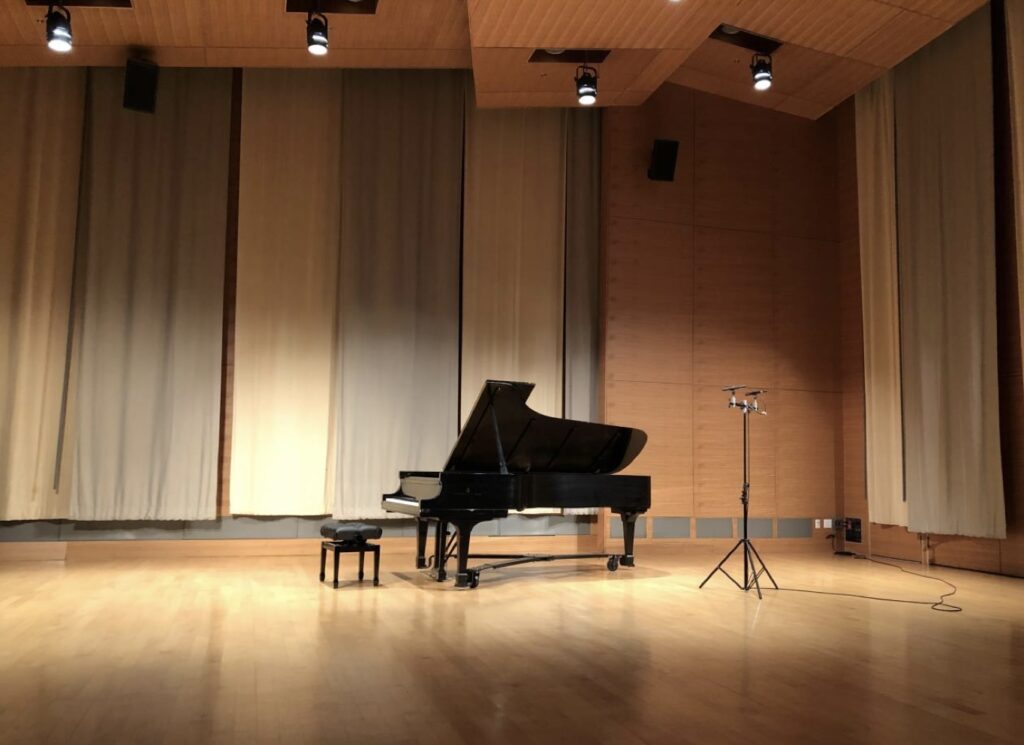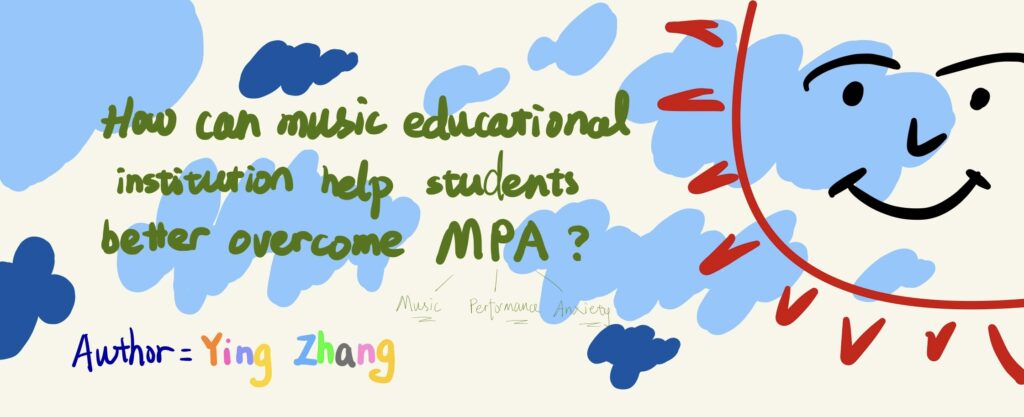
How can music educational institutions help students better overcome Music Performance Anxiety (MPA)?
Introduction: Addressing Music Performance Anxiety in Music Educational Institutions
Music Performance Anxiety (MPA) “is the experience of marked and persistent anxious apprehension related to musical performance that has arisen through underlying biological and/or psychological vulnerabilities and/or specific anxiety-conditioning experiences.”1

According to the American Psychological Association (APA, 2020), MPA is a phenomenon that can affect manifest as physical symptoms such as trembling, sweating, and rapid heartbeat, as well as cognitive symptoms like negative self-talk and intrusive thoughts. The fear of judgment, the pressure to excel, and the anticipation of potential mistakes can create a sense of dread that undermines one’s ability to perform at their best. It is commonly accepted in music that those phenomenon affects musicians across ages and skill levels, impacting their ability to perform to their fullest potential. Music Performance Anxiety (MPA) is a significant concern for many music students, impacting their ability to excel in their craft. MPA can hinder students’ progress and confidence in their musical abilities. Recognizing the prevalence and impact of MPA, it becomes essential for music educational institutions to play an active role in supporting students in overcoming this challenge.
In this blog, we explore strategies and initiatives that music educational institutions can implement to assist students in managing and mitigating music performance anxiety effectively. I present these strategies and initiatives primarily based on my own experience, and the strategies I’ve listed are strategies that I think have worked well for me. By examining the intersection of psychology and music education, we aim to offer practical insights and recommendations for educators and administrators striving to create supportive learning environments for their students.

MPA: What if the Individual Perspective Changes Everything?
The notion of viewing Music Performance Anxiety (MPA) as a challenge rather than a threat aligns closely with personal coping strategies I’ve employed to navigate through performance anxiety. Rather than succumbing to the paralyzing grip of fear, reframing negative thoughts and focusing on the intrinsic joy of music-making have been transformative approaches in my journey.
Shifting the perspective from viewing MPA as an insurmountable obstacle to seeing it as a hurdle to overcome can have profound effects on how individuals approach performance situations. Instead of dreading performances as potential moments of failure, reframing them as opportunities for growth and expression can empower musicians to embrace the stage with confidence and resilience.

By acknowledging the physiological and psychological manifestations of anxiety while simultaneously embracing the challenge they present, I’ve been able to harness nervous energy into focused determination and creative expression. Moreover, recognizing that MPA is not a sign of weakness but rather a common experience shared by many musicians has been liberating.
When music educators and institutions strive to support students in overcoming MPA, it’s crucial to emphasize the importance of individualized approaches. What works for one musician may not necessarily work for another, underscoring the need for flexibility and open-mindedness in addressing this complex issue.
By encouraging students to explore various coping strategies and empowering them to take ownership of their mental well-being, music educational institutions can foster a culture of resilience and self-compassion. Ultimately, by reframing MPA as a challenge to be embraced rather than a threat to be feared, individuals can unlock their full potential and experience the transformative power of music in its purest form.
Decoding the Anatomy of Musician’s Performance Anxiety
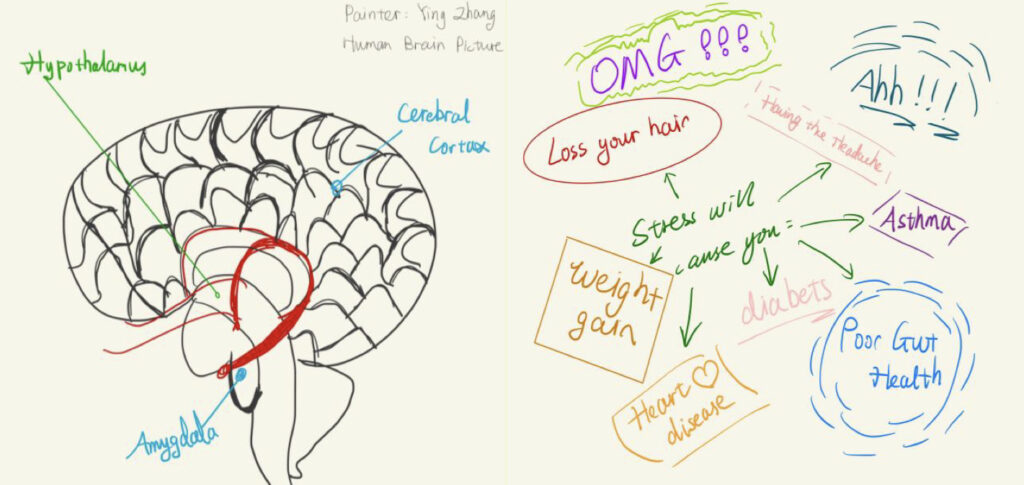
Ever wondered why your heart races and palms sweat before stepping onto the stage? It’s all about how your body reacts to stress, as explained by experts at Harvard Health Publishing.
When you’re gearing up for a performance, your brain’s amygdala, the fear center, goes into overdrive. It sends out signals that trigger the release of stress hormones like adrenaline and cortisol into your bloodstream. These hormones kickstart a physiological chain reaction, causing your heart to pound, your breath to quicken, and your muscles to tense up – classic symptoms of stage nerves.
But understanding this biological response is just the beginning. Armed with this knowledge, musicians can develop strategies to tackle performance anxiety head-on. By employing techniques to calm the body’s stress response, such as deep breathing and muscle relaxation exercises, performers can dial down those pre-show jitters and step onto the stage with greater confidence.
Ying Zhang talks about her MPA experiences
Based on my own experience, I believe performers can ground themselves amidst the whirlwind of performance anxiety, promoting a sense of calmness and control by cultivating awareness of the present moment and practicing mindfulness techniques like focused breathing.
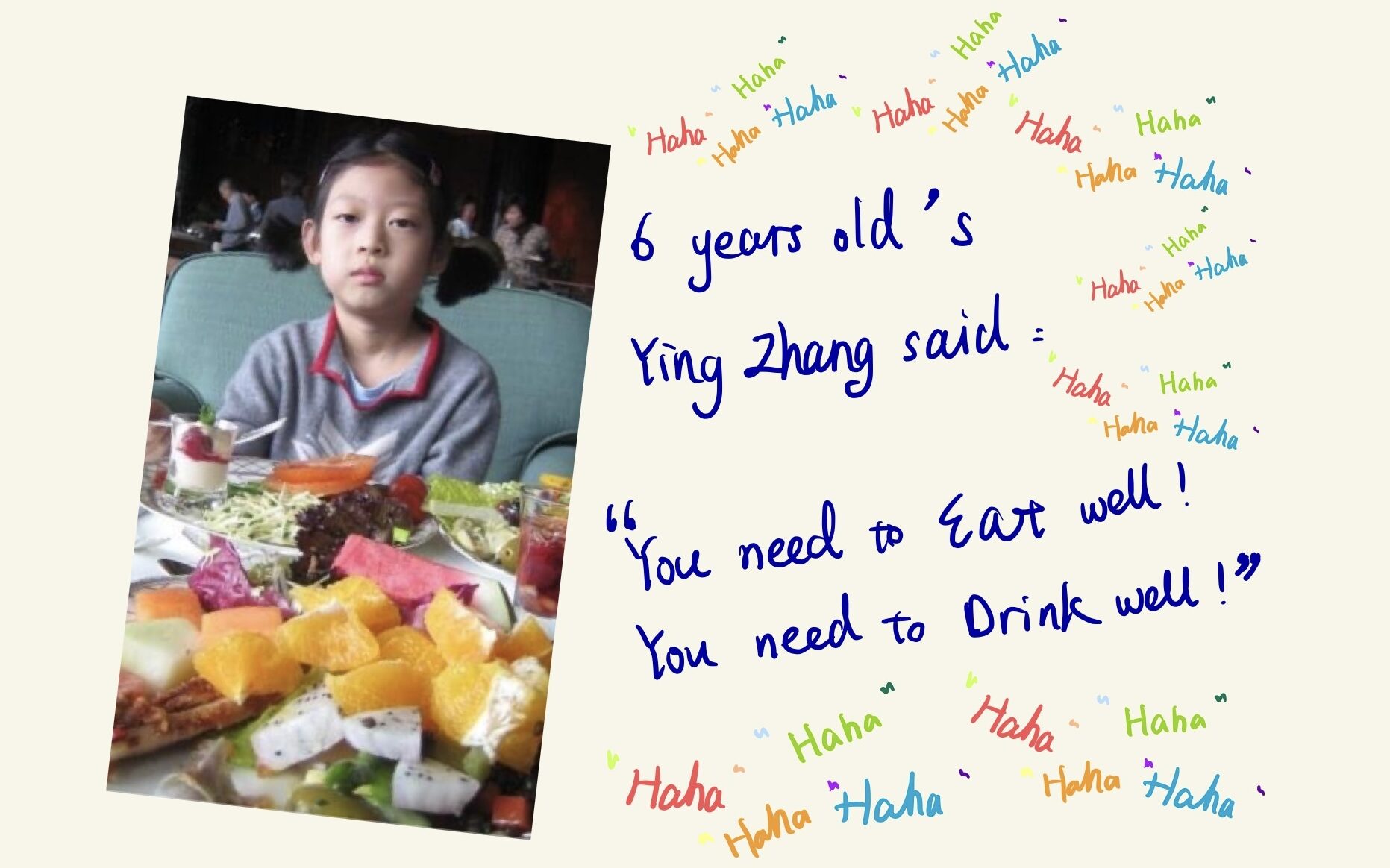
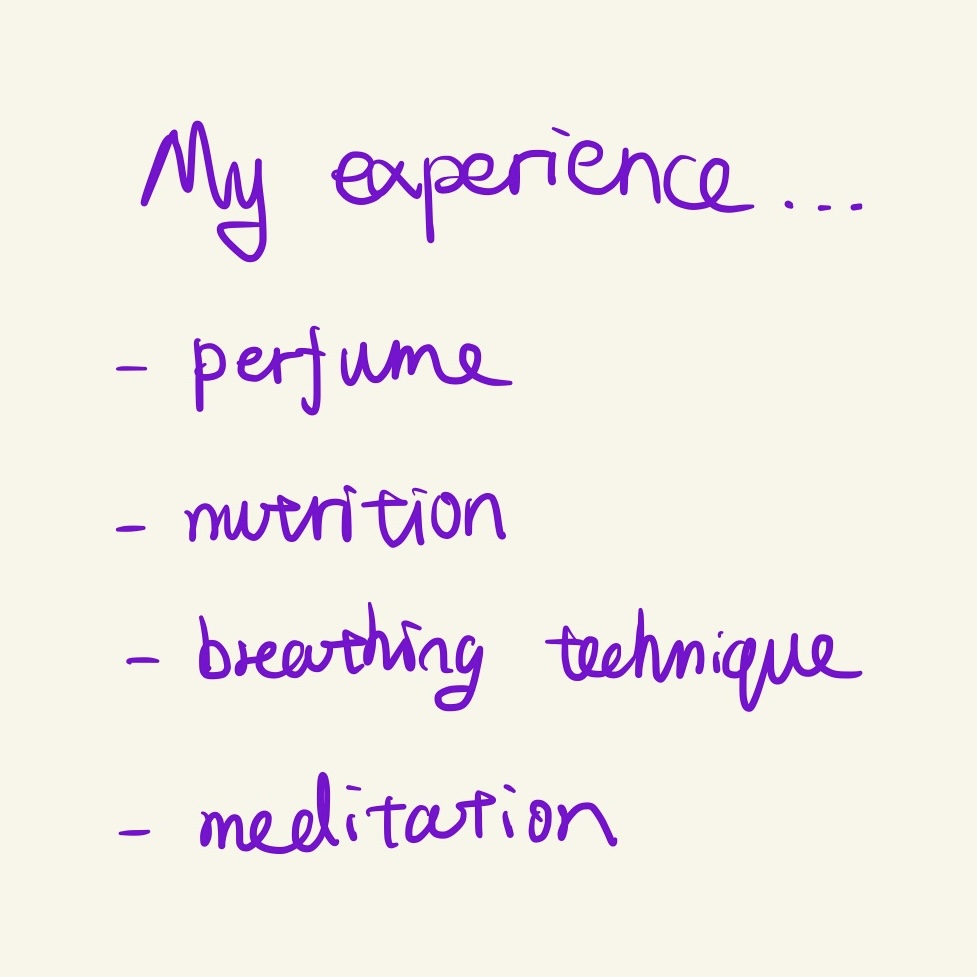
In the video above, I shared my personal experiences as a piano student, delving into the various strategies that have significantly enhanced my performance. From the transformative power of meditation to the subtle influence of perfume, and the importance of nutrition planning, I discussed how these elements have shaped my musical journey.
Through this video, I aimed to offer insights and inspiration to fellow musicians looking to elevate their own practice routines and deepen their connection to their instrument during their performance on the stage.
Integrating Strategies: How Music Schools Are Helping Students Shine
As a piano student at McGill, I’ve witnessed firsthand the diverse array of strategies employed by music institutions to support students in overcoming Music Performance Anxiety (MPA). By employing a combination of these strategies, music institutions can create a supportive and empowering environment where students can thrive academically, artistically, and personally, even in the face of performance anxiety. Based on my own experience, I’ve benefited from these initiatives firsthand, witnessing their transformative impact on myself.
Here’s a comprehensive overview of the multifaceted approaches adopted by music institutions:

These mock audition sessions offered me invaluable feedback from faculties, helping me refine my performance skills and build confidence on stage. Moreover, mock auditions provided a structured environment for confronting and managing my Music Performance Anxiety (MPA). Through repeated exposure and supportive feedback, I learned to channel nervous energy into focused determination.
Additionally, these studio classes and performance classes fostered a sense of camaraderie among peers, creating a supportive community where we could learn from each other’s experiences and offer encouragement. Overall, mock auditions and performance classes have played a crucial role in my growth as a pianist and performer, equipping me with the skills and confidence needed to pursue a successful career in music.
Tips For Releasing Your Stress
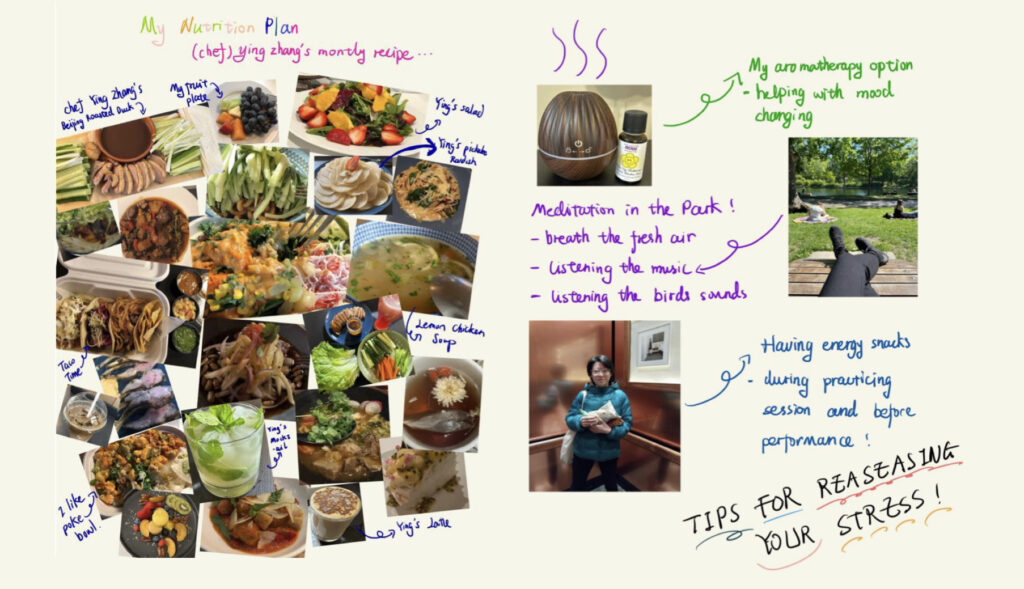
Conclusion: Strategies Implemented by Music Institutions

Overcoming MPA requires a multifaceted approach that addresses cognitive, emotional, and physiological aspects of anxiety. Kalenska-Rodzaj (2020) emphasizes the importance of addressing pre-performance emotions and MPA beliefs in young musicians, highlighting the need for early intervention and education in music schools.
Music educational institutions have a pivotal role in addressing Music Performance Anxiety (MPA) and supporting their students in navigating this psychological challenge. Through a combination of educational initiatives, psychological support services, and performance opportunities, these institutions can create a holistic framework for promoting mental well-being and resilience among their student body.
One effective strategy employed by music institutions is the integration of performance psychology courses into their curriculum. These courses provide students with valuable insights into the psychological aspects of performance anxiety and equip them with practical coping strategies to manage stress and optimize performance. By normalizing discussions around MPA and providing students with tools to cope with its effects, these courses help destigmatize mental health issues within the music community and empower students to seek support when needed.
Music institutions often offer individualized counseling and coaching services to students struggling with MPA. Through one-on-one sessions with trained professionals, students can explore the underlying causes of their anxiety, develop personalized coping strategies, and receive ongoing support and encouragement. These services play a crucial role in addressing the unique needs of each student and fostering a supportive environment where individuals feel valued and understood.
Music institutions recognize the importance of creating performance opportunities that simulate real-world settings while providing a supportive and non-judgmental atmosphere. By organizing studio classes, masterclasses, and informal recitals, these institutions offer students a platform to showcase their talents, receive constructive feedback, and gradually build confidence in their abilities. These experiences not only help desensitize students to performance anxiety but also foster a sense of community and camaraderie among peers.
Even more, music institutions can promote a culture of self-care and mindfulness by integrating wellness programs and resources into their curriculum. From yoga and meditation classes to workshops on stress management and resilience-building, these initiatives empower students to prioritize their mental and physical well-being amidst the demands of their musical training. By emphasizing the importance of self-care as an integral component of artistic development, music institutions instill lifelong habits that enable students to thrive both personally and professionally.
Finally, music institutions play a vital role in addressing Music Performance Anxiety by implementing a range of strategies that support students in managing stress, building resilience, and optimizing performance. By normalizing discussions around mental health, providing personalized support services, creating performance opportunities, and promoting a culture of self-care, these institutions empower students to overcome MPA and cultivate fulfilling and sustainable careers in music.
References
Braden, A. M., Osborne, M. S., & Wilson, S. J. (2015). Psychological intervention reduces self-reported performance anxiety in high school music students. Frontiers in psychology, 6, 195. https://doi.org/10.3389/fpsyg.2015.00195
Clinical Partners. (n.d.). What is Performance Anxiety? Retrieved from https://www.clinical-partners.co.uk/insights-and-news/anxiety/item/what-is-performance-anxiety#:~:text=Symptoms%20of%20performance%20anxiety&text=The%20amygdala%2C%20a%20part%20of,chemical%20reactions%20that%20releases%20adrenaline.
Edinoff, A. N., Akuly, H. A., Hanna, T. A., Ochoa, C. O., Patti, S. J., Ghaffar, Y. A., Kaye, A. D., Viswanath, O., Urits, I., Boyer, A. G., Cornett, E. M., & Kaye, A. M. (2021). Selective Serotonin Reuptake Inhibitors and Adverse Effects: A Narrative Review. Neurology International, 13(3), 387–401. https://doi.org/10.3390/neurolint13030038
Farley, A., & Kelley, J. (2023). Music performance anxiety and self-compassion in college-level music majors. Psychology of Music, 51(4), 1275-1287. https://doi.org/10.1177/03057356221138129
Guyon, A. J. A. A., Studer, R. K., Hildebrandt, H., Horsch, A., Nater, U. M., & Gomez, P. (2020). Music performance anxiety from the challenge and threat perspective: Psychophysiological and performance outcomes. BMC Psychology, 8. https://doi.org/10.1186/s40359-020-00448-8
Goren, L. (2015). A meta-analysis of nonpharmacologic psychotherapies for music performance anxiety. Dissertation Abstracts International: Section B: The Sciences and Engineering, 75(9-B(E)). http://ovidsp.ovid.com/ovidweb.cgi?T=JS&PAGE=reference&D=psyc14&NEWS=N&AN=2015-9 9060-239.
Harvard Health Publishing. (n.d.). Understanding the stress response. Retrieved from https://www.health.harvard.edu/staying-healthy/understanding-the-stress-response#:~:text=After%20the%20amygdala%20sends%20a,as%20adrenaline)%20into%20the%20bloodstream.
Kalenska-Rodzaj, J. (2020). Pre-performance emotions and music performance anxiety beliefs in young musicians. Research Studies in Music Education, 42(1), 77-93. https://doi.org/10.1177/1321103X19830098
Kalenska-Rodzaj, J. (2021). Music performance anxiety and pre-performance emotions in the light of psychology of emotion and emotion regulation. Psychology of Music, 49(6), 1758-1774. https://doi.org/10.1177/0305735620961154
K&M Music School. (n.d.). Performance Anxiety: 10 Strategies – How Musicians Can Overcome Stage Fright. Retrieved from https://kandmmusicschool.com/blogs/music-lessons/performance-anxiety-10-strategies-how-musicians-can-overcome-stage-fright/
Kenny, Dianna T., ‘Defining music performance anxiety’, The Psychology of Music Performance Anxiety (Oxford, 2011; online edn, Oxford Academic, 19 Jan. 2012), https://doi.org/10.1093/acprof:oso/9780199586141.003.0027, accessed 29 Apr. 2024.
Smith, L. (2022). Review of the current understanding of music performance anxiety, its comorbidities, available treatments and their implementation. Dissertation Abstracts International: Section B: The Sciences and Engineering, 83(3-B).
Ugwuanyi, C. S., Ede, M. O., Onyishi, C. N., Ossai, O. V., Nwokenna, E. N., Obikwelu, L. C., Ikechukwu-Ilomuanya, A., Amoke, C. V., Okeke, A. O., Ene, C. U., Offordile, E. E., Ozoemena, L. C., & Nweke, M. L. (2020). Effect of cognitive-behavioral therapy with music therapy in reducing physics test anxiety among students as measured by generalized test anxiety scale. Medicine, 99(17), e16406. https://doi.org/10.1097/MD.0000000000016406
- Kenny, Dianna T., ‘Defining music performance anxiety’, The Psychology of Music Performance Anxiety (Oxford, 2011; online edn, Oxford Academic, 19 Jan. 2012), https://doi.org/10.1093/acprof:oso/9780199586141.003.0027, accessed 29 Apr. 2024. ↩︎

